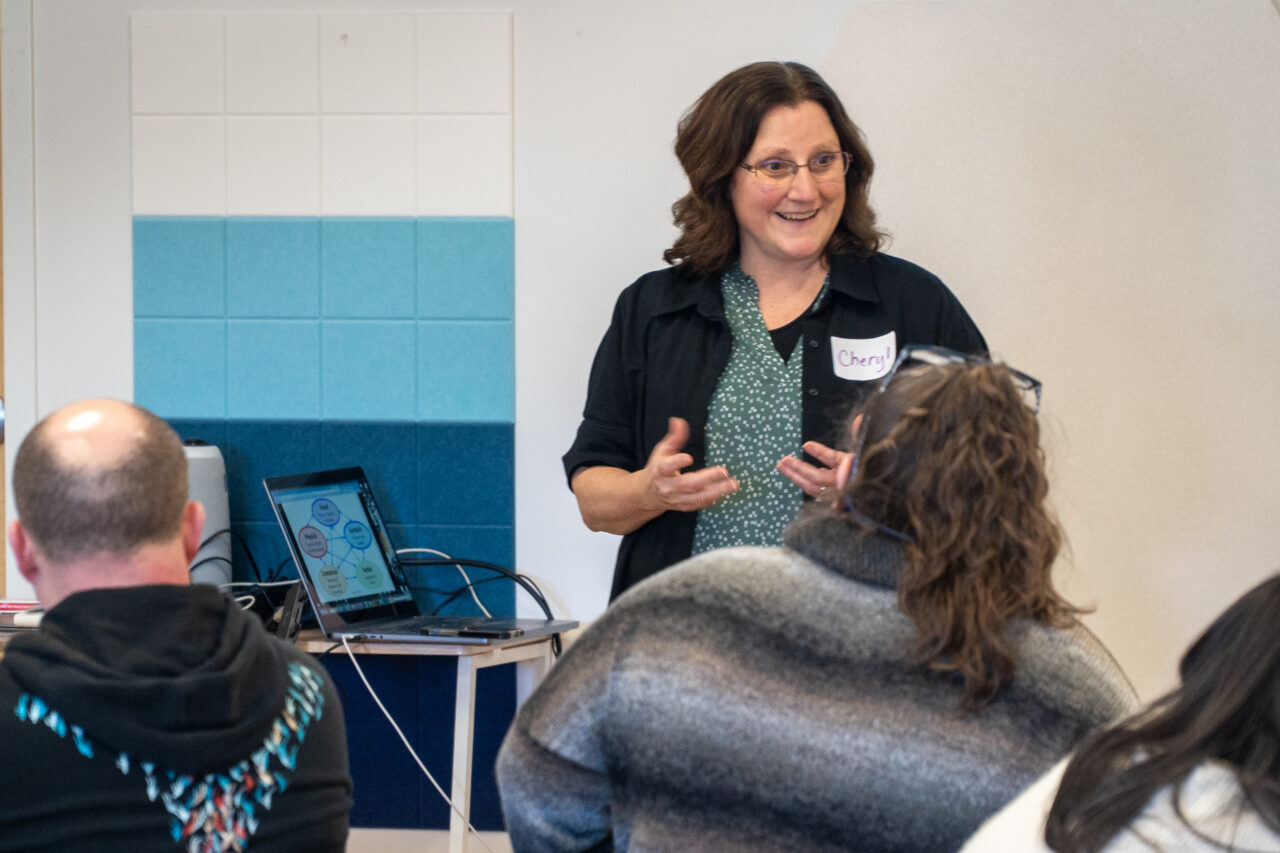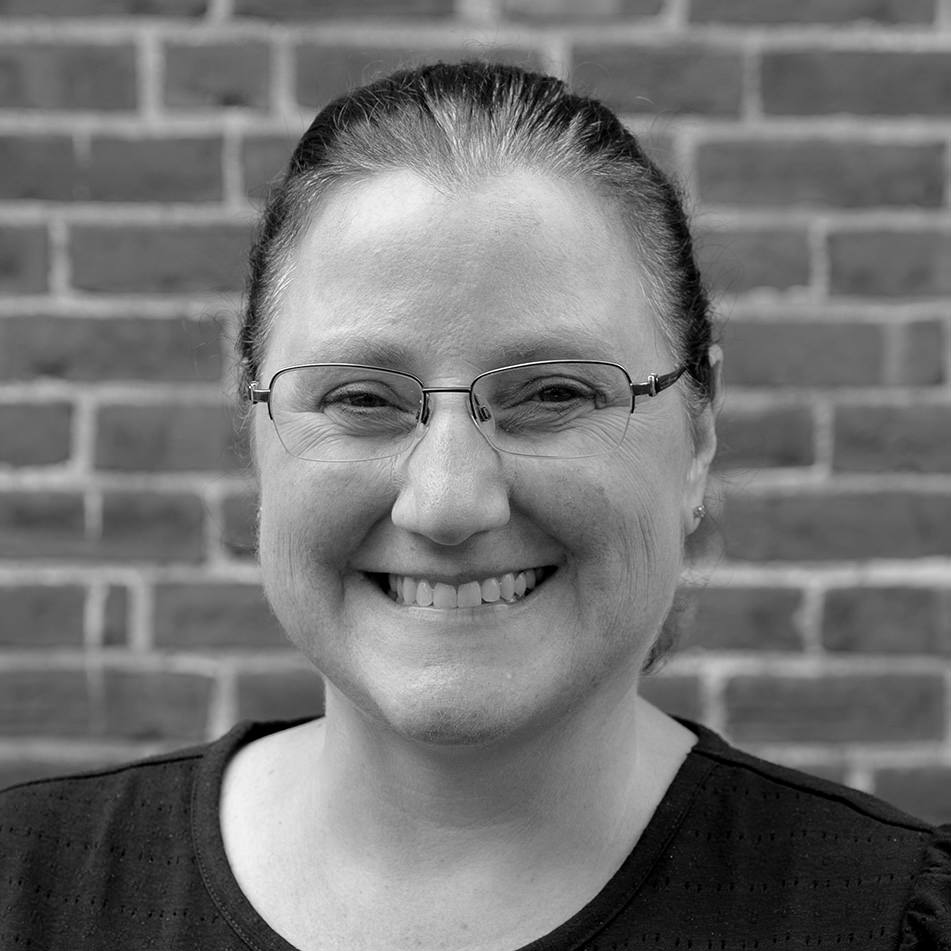Meeting Students Where They Are: A Spotlight on Cheryl Tobey
Posted on

Many people grow up believing they just are not “math people,” and Cheryl Tobey nearly joined them. By fifth grade, after moving through five schools in four years, she sat staring at a math worksheet that felt like a locked door, until a teacher pulled up a chair. Cheryl recalls, “My 5th-grade teacher, Mrs. Cogswell, patiently and kindly helped me catch up. That experience ignited a love of math and planted the seed that I wanted to help others enjoy it as much as I did.”
That seed is the through line of Cheryl’s work today as a STEM Education Specialist at MMSA. She partners with schools on professional learning, coaching, and resource design that put student ideas at the center. Her goal is to help teachers turn “I don’t get it yet” moments into turning points for learning, because those are the moments when students begin to see themselves as capable mathematicians. As she explains, “All learners deserve the opportunity to build a positive mathematics identity and a sense of agency.”
The Path Behind the Practice
In college, a math education professor opened a new door for Cheryl by showing her the difference between conceptual and procedural knowledge. Reflecting on her early teaching years, Cheryl explains, “I dove into every professional learning opportunity I could find. Those experiences shaped me as both a learner and a teacher.”Later, working alongside Page Keeley, she co-designed formative assessment classroom techniques (FACTS) in mathematics, approaches that revealed student reasoning and set her on a collaboration-rich path.
Across classrooms, state leadership, and national projects, she kept circling back to the same question: “How do we understand what students are thinking and use that insight to plan next steps?” Her answer became a body of strategies that teachers still keep close at hand. As she puts it, the work is about “designing tools that engage and motivate students, activate their thinking, spark mathematical discussion, and promote metacognition.”
She is especially drawn to opportunities that bring hidden ideas to the surface. Cheryl explains, “I became especially passionate about diagnostic probes that highlight student strengths and surface misconceptions, helping educators to see the ‘magnificence in the misconception.’”
Coaching in a Time of New Tools
Cheryl knows classrooms evolve, and so do the resources teachers rely on. Virtual manipulatives like Polypad have expanded what students can explore. AI, meanwhile, adds new challenges. Cheryl notes, “Since AI has gotten much better at solving both simple and complex procedural math problems, it is even more important for students to experience math as a way to solve authentic problems, not just as a set of steps to get an answer.”
She encourages educators to treat technology as a partner in deepening understanding, while also considering what may be lost when tools do the work. As she explains, “Helping to navigate these questions has become an exciting and essential part of my role.”
Why Cheryl’s Work Sticks With Teachers
Cheryl’s resources are widely used because they reflect a belief teachers share: every student has something to say, and instruction gets sharper when those ideas come forward. As she explains, “When classrooms surface those ideas, teachers can plan the next step with clarity and care.” You can explore a list of Cheryl’s publications here and find math resources on our website here.
Walk into a school partnering with Cheryl and you’ll hear the buzz of students sharing ideas, responding to one another, with teachers guiding. You’ll also notice familiar routines and tasks that carry across grade levels, giving both students and teachers a shared structure to grow from together.
That lasting influence is felt by her colleagues as well. Chelsea Fay, STEM Education Specialist at MMSA, shares, “There is no doubt that Cheryl’s work—both now and throughout the years—has had a profound and long-standing impact. No matter where we go, from Northern Maine to California, everyone knows Cheryl and speaks highly of the projects she’s been a part of and the meaningful contributions she’s made. She approaches everything she does with passion and dedication.”
Cheryl’s Leadership and the Story That Guides It
As MMSA’s math consulting team lead for many years, she has drawn on her experience as both a classroom teacher and her time at the Department of Education. As a STEM Education Specialist, she works with schools and districts across Maine to build spaces where student reasoning comes first, where teachers treat misconceptions as opportunities,and where math opens doors rather than closes them. She shapes professional learning opportunities, classroom resources, and coaching support that continue to shape math education statewide.
The fifth grader who did not think she was a “math person” never left the story. The empathy from that experience is still present when Cheryl co-plans with a team or debriefs a probe. As she puts it, “I am learning alongside incredible educators and paying forward the powerful ideas and practices that support student learning.”
Educators and schools can work with Cheryl through MMSA’s math consulting services or register for her upcoming professional development workshop on Math Intervention and Differentiation, happening on October 3.
 Cheryl Tobey
Cheryl Tobey
STEM Education Specialist